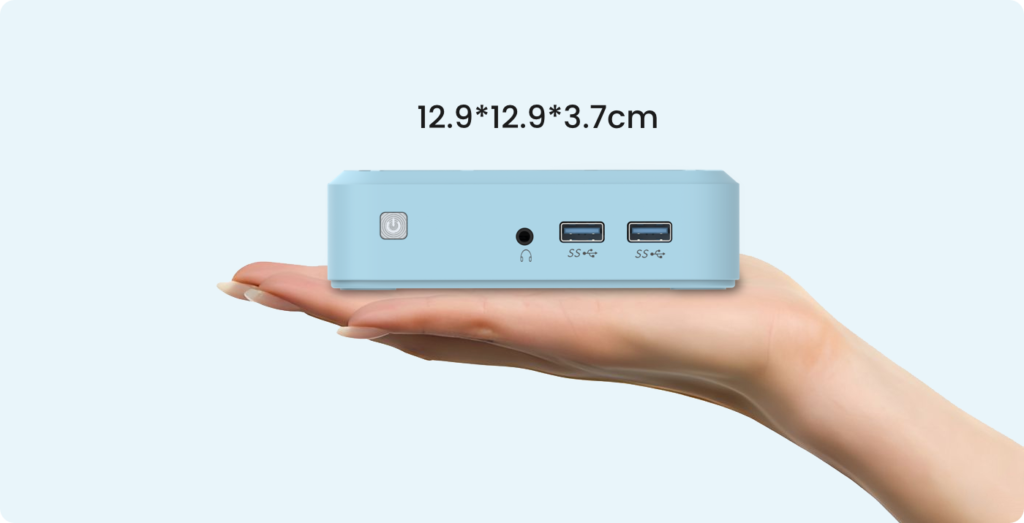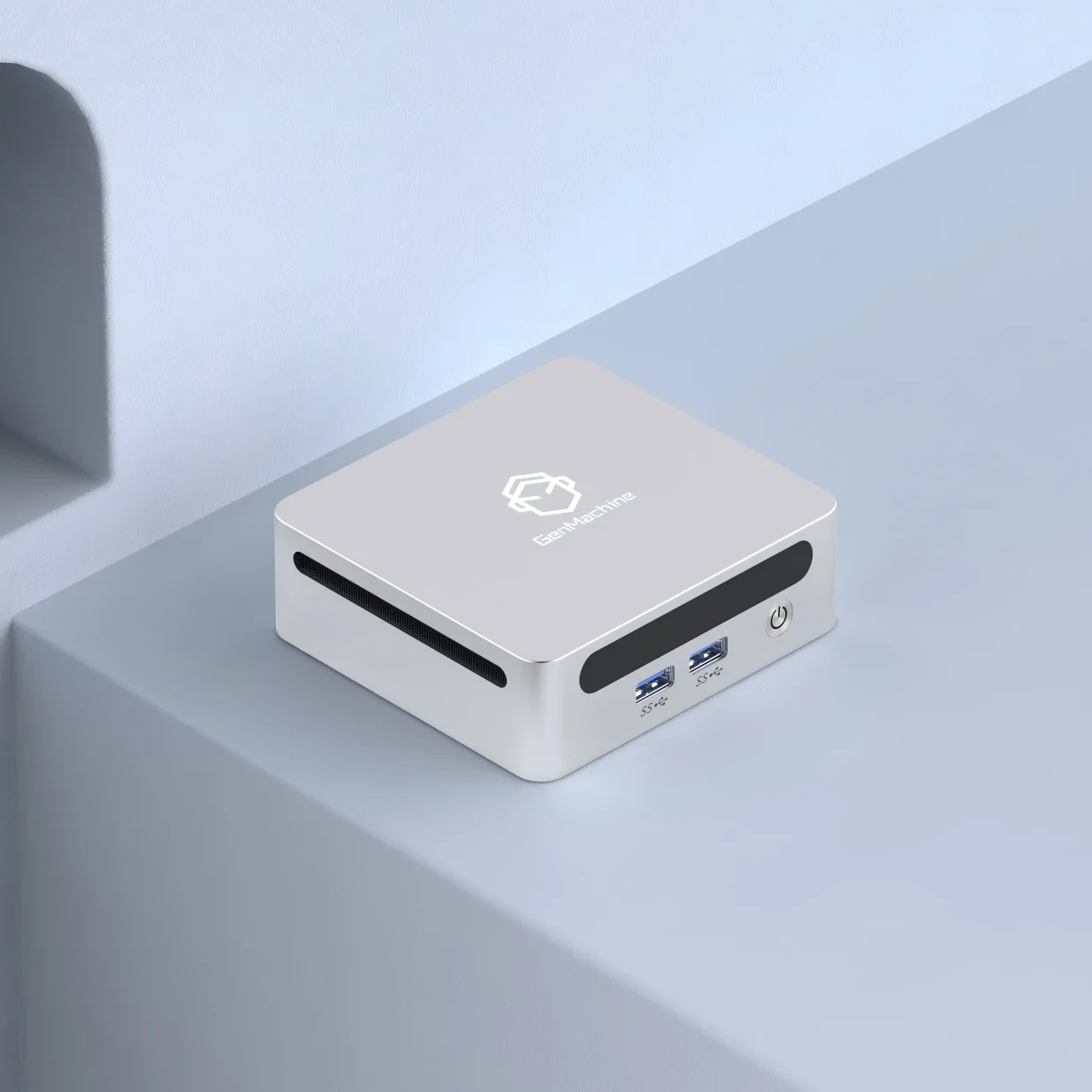A mini computer is good for most office jobs. It runs well and does not break often. It can use important software. Many people like that it costs less and makes little noise. Some people think it cannot upgrade much or do big jobs. If you want a mini computer for office work, think about these good and bad points.
Key Takeaways
- Mini computers work well for office jobs like typing, making spreadsheets, and sending emails. They turn on fast and work without problems. This makes them a good pick for most offices.
- These devices do not cost much. They use less electricity and need less fixing than regular desktops. This helps companies spend less money at first and later on.
- Mini computers are small and save energy. Offices can use their space better and keep things quiet. They are great for desks that many people use and for setups that can change.

Mini Computer Performance
Office Tasks
A mini pc can handle most daily office tasks with ease. Many people use a mini computer for word processing, spreadsheets, and making presentations. These devices open documents quickly and let users edit files without delay. Email runs smoothly on a mini pc, so workers can send and receive messages all day. Web browsing feels fast and responsive, even with several tabs open.
Most office workers do not need heavy graphics or special software. A mini pc fits well in these settings. It starts up fast, so employees can get to work right away. The fan runs quietly, which keeps the office calm and free from loud noise. People who do light office work, like answering emails or writing reports, find that a mini computer meets their needs.
Tip: A mini pc works best for tasks like typing, making charts, and checking email. It may not suit jobs that need advanced design or video editing tools.
Multitasking
Many office workers need to switch between tasks during the day. A mini pc can run several programs at once, such as a web browser, a spreadsheet, and a chat app. Users can move between these apps without much lag. This helps teams stay productive and finish work on time.
A mini pc does not slow down when running basic office software together. Employees can join video calls, check calendars, and update documents all at once. The performance stays steady for most office needs.
Here is a quick look at how a mini pc handles multitasking in an office:
| Task Type | Mini PC Performance | User Experience |
|---|---|---|
| Word Processing | Fast | Smooth, no delays |
| Spreadsheets | Fast | Easy to use |
| Fast | Quick response | |
| Web Browsing | Fast | Multiple tabs work |
| Video Calls | Good | Clear and stable |
A mini pc keeps up with the pace of a busy office. It does not overheat or make much noise, even when several programs run at once. This makes it a smart choice for shared workspaces or small offices.
Note: While a mini pc handles most multitasking well, it may not perform as well with very large files or advanced software. For most office tasks, though, the performance is more than enough.
Reliability
Daily Use
Mini computers show strong reliability in a busy office. They run all day without crashing or freezing. Many workers notice that these devices stay cool and quiet, even after hours of use. The simple design means fewer parts can break. This helps the computer last longer and keeps work moving. People trust mini computers because they rarely need repairs.
If someone wants a computer that works every day without problems, a mini computer is a smart pick.
Mini computers also use less power than big desktops. This saves money on electricity and helps the office stay green. The low power use means the computer does not get too hot, which adds to its durability.
Maintenance
Taking care of a mini computer is easy. Most models do not need much cleaning or special tools. Workers can dust the outside and keep vents clear. The small size makes it simple to move or store the device.
Here are some tips for keeping a mini computer in good shape:
- Turn off the computer when not in use.
- Keep the area around the vents clean.
- Update software when needed.
Mini computers do not need much attention. This makes them a good choice for offices that want less hassle and more time for work.

Mini PC Compatibility
Office Software
A mini pc works with most office software. It runs word processors and spreadsheets easily. Presentation tools work fine too. Many teams use cloud apps like Google Docs. Microsoft 365 also works well on a mini pc. The computer connects to these services fast. Workers open files and edit documents quickly. They can share work with others without problems. Slow loading or errors do not happen often.
Some people wonder about updates or new software versions. A mini pc can handle updates just fine. It supports regular updates for office programs. These devices keep up with changes in popular software. A mini pc helps teams stay organized and productive.
Tip: If someone uses web tools, a mini pc works smoothly. They do not need extra steps to begin.
Peripherals
A mini pc works with many office accessories. Workers can plug in monitors and keyboards. Mice connect easily too. Most mini pcs have ports for printers and scanners. They link to projectors for meetings. Some teams use extra screens for more info. A mini pc handles this setup well.
Here is a quick list of devices that work with a mini pc:
- Monitor
- Keyboard
- Mouse
- Printer
- Scanner
- Projector
People do not need special adapters for most accessories. A mini pc fits into the office with no trouble. Teams can set up their workspace and start working fast.
Advantages and Limitations
Space-Saving
Mini computers do not need much space. They can sit on a small desk or behind a monitor. Offices often want more room for people, not machines. Small computers help save space. Teams can fit more desks in the same area. This keeps the office neat and tidy. People like that they can move these devices easily if they want to change seats.
A clean desk helps workers pay attention and feel calm.
Energy Efficiency
Small computers use less energy than big desktops. This means the office pays less for electricity. Using less power is good for the environment too. These devices stay cool and do not need loud fans. The office stays quiet, so workers can focus better. Many companies want to save money and help the earth. Small computers make this easy.
Expandability
Mini computers have some limits. They do not have much space for upgrades. Most models cannot add more storage or memory. This can be hard for people who use heavy programs or need lots of space for files. Some offices need more power for special jobs. In those cases, a bigger desktop might be better.
- Main Benefits:
- Small size
- Easy to move
- Uses little power
- Runs quietly
- Drawbacks:
- Not much room for upgrades
- Not good for hard jobs
Tip: Think about what work your team does before picking a mini computer.
Use Cases
Best Scenarios
Mini computers work well in many offices. They fit in places where teams want to save space. Many companies use them at the front desk or in meeting rooms. Shared workstations also use mini computers. Workers who check email or write reports find them easy. People who browse the web like these devices too. Small teams that move around need flexible setups. Mini computers help with this. Some companies use them for digital signs or simple kiosks. IT staff can set up mini computers fast. They help keep desks neat.
Tip: Mini computers help keep offices tidy and quiet. They are best for daily business tasks.
When to Avoid
Some jobs need more power than mini computers have. Teams that use design software or edit videos need bigger machines. Large databases also need more power. If a company wants to upgrade hardware often, desktops are better. Offices that store lots of files need more space. Some jobs need special cards for graphics or sound. These offices should pick other computers.
Here is a quick list of when not to use mini computers:
- Heavy design or video editing
- Large data jobs
- Lots of hardware upgrades
- Special hardware needs
A business should think about its work before picking a mini computer. The right computer helps teams work well and stay happy.
Conclusion
A mini computer fits most office work. Teams see strong value in daily office tasks. The office stays quiet and neat. People should check their work needs before choosing. A high-quality mini computer helps offices save space and energy. Smart buyers pick what works best for their office.





